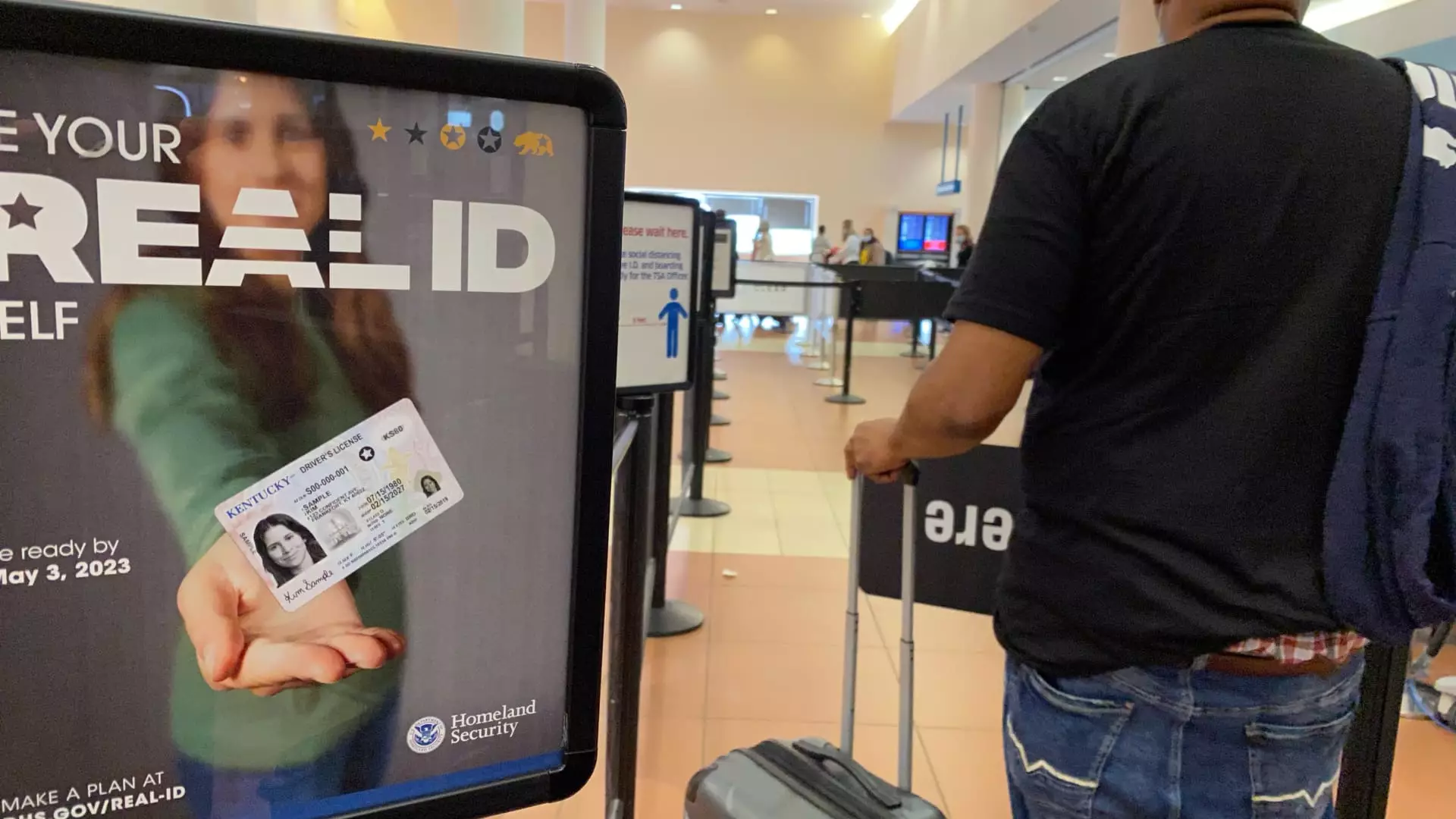As we inch closer to May 7, the impending enforcement of the Real ID requirements looms over travelers with a sense of impending doom. It’s almost comical to watch the federal government fumble its way through a crucial security measure that has been in the works for nearly two decades. Approved in 2005 in response to the catastrophic events of September 11, the delay in implementation only underscores a significant flaw in governmental efficiency. After multiple postponements, it almost feels as if the deadline is serving more as a threat than a solution, leaving many to wonder if the government is genuinely equipped to safeguard the traveling public.
Understandably, the Transportation Security Administration (TSA) reports that 81% of airport-goers already possess Real ID-compliant identification. Yet, this posits the question: what about the other 19%? Disregarding them could lead to unnecessary stress and deter tourism—an industry still recovering from the pandemic’s wrath. We must ask ourselves how much longer can we allow the government to cry wolf, pushing deadlines as if it’s merely another bureaucratic maneuver rather than a vital security measure?
The Frustration of Waiting in Lines
Travelers are already overwhelmed; the last thing they need is to navigate the bureaucratic nightmare of obtaining a Real ID just weeks from the deadline. Motor vehicle departments are practically inundated with requests, leaving many residents scrambling. The advice from TSA officials to “make appointments as quickly as possible” is less than reassuring when appointment availability is scant. The government seems blissfully unaware of the chaos it has created or the inconvenience it brings to everyday citizens.
This does not merely reflect poor planning; it showcases an attitude of negligence toward the American public. Who wants to be subjected to long lines at airports due to a lack of foresight from an institution that should prioritize the efficiency and convenience of its citizens? Instead of fostering a seamless travel experience, the Real ID rollout has cultivated an environment of frustration and anxiety.
The True Cost of Enforcement
While proponents of the Real ID Act trumpet its capabilities for bolstering national security, the hidden costs are staggering. Forcing citizens to obtain a state-issued identification that adheres to federal requirements is a coercive act. It’s not merely a sticker on a driver’s license; it represents the intrusion of government in our lives, telling us how we must prove our identity to exercise basic freedoms like travel. If you can’t afford the time or money to deal with this bureaucratic headache, you may as well prepare for an endless cycle of extra screening processes or, worse, be barred from your flight altogether.
The stark reality is that this long-delayed initiative primarily affects the ordinary American. Do we truly believe that these regulations will deter those intent on causing harm? Security measures should reflect intelligence and adaptability, not arbitrary requirements that inconvenience law-abiding citizens. It’s high time we demand a more considerate approach from our officials, one that harmonizes security with everyday practicality.
Blind Compliance Over Critical Thinking
Hailing from a center-right, liberal perspective, my significant concern lies within this blind compliance under the guise of security. Our nation prides itself on freedom and autonomy, yet here we stand, tethered to a convoluted matrix of ID compliance reminiscent of oppressive regimes. The argument that Real ID is essential for safety reeks of fear-mongering tactics that political leaders continue to manipulate. The fact that alternatives like passports or permanent resident cards exist undermines the alleged urgency of this enforcement.
As citizens, it is our prerogative to question measures that assert greater control over our freedoms. Rather than simply accepting these mandates, we must engage critically with the policies shaping our security landscape. As we approach this arbitrary May 7 deadline, let’s recognize the threat not just of an unfriendly airport experience but of a government that assumes total authority over our individual autonomy.
The Real ID is not a simple measure; it’s a slippery slope toward a more regulated society. We should adopt better benchmarks for security, moving towards systems that adapt to changing threats rather than rigidly imposing rules that frustrate rather than protect. As we stand on the brink of this new enforcement era, may we challenge the status quo and demand genuine efficiency from the powers that be.

